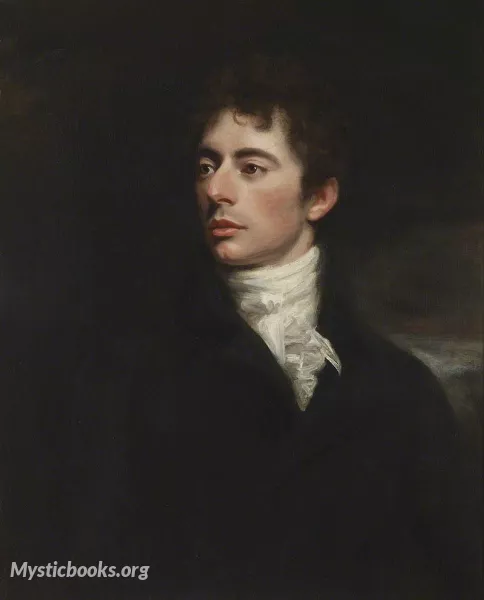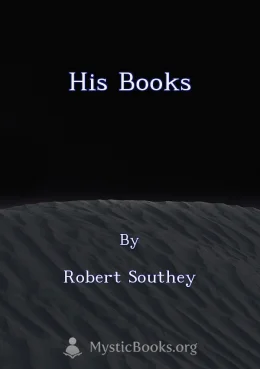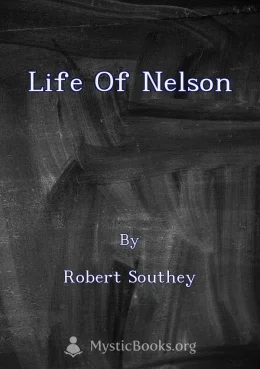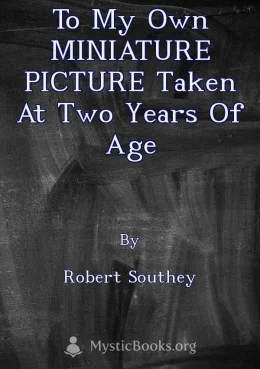
Timeline
Title
Country/Nationality
Robert Southey
Robert Southey (12 August 1774 – 21 March 1843) was an English poet of the Romantic school, and Poet Laureate from 1813 until his death. He was born in Bristol, England, and was educated at Westminster School and Oxford University.
Southey was a prolific writer, and his works include poems, histories, biographies, and travelogues. He is best known for his poems The Curse of Kehama (1810) and Thalaba the Destroyer (1801), and his historical works The History of Portugal (1809) and The History of Brazil (1810-1819).
Southey was a staunch conservative, and his political views often clashed with those of his fellow Romantic poets, such as William Wordsworth and Samuel Taylor Coleridge. He was also a strong supporter of the slave trade, and his views on this issue have been criticized by modern scholars.
Despite his political views, Southey was a respected figure in his own time, and he was awarded the Poet Laureateship in 1813. He held this position until his death in 1843.
Southey's Principles
Southey was a complex and contradictory figure, and his principles were often inconsistent. However, some of his core beliefs included:
- The importance of tradition and history
- The importance of religious faith
- The importance of social order and stability
- The importance of patriotism
- The importance of the individual
Southey's Notable Works
In addition to the poems The Curse of Kehama and Thalaba the Destroyer, Southey's other notable works include:
- The Vision of Judgment (1821): A satirical poem that attacks the liberal Whig government of Lord Liverpool.
- The Life of Nelson (1813): A biography of the British naval hero Horatio Nelson.
- The Doctor (1834-1836): A novel about a group of friends who live in a utopian community.
- The Poet's Pilgrimage to Waterloo (1816): A travelogue about Southey's visit to the battlefield of Waterloo.
Southey's Philosophy
Southey's philosophy was a complex and eclectic mix of ideas. He was influenced by a wide range of thinkers, including Edmund Burke, William Wordsworth, and Thomas Carlyle.
Southey's philosophy was based on the belief that the individual is part of a larger whole, such as a family, a community, or a nation. He believed that the individual should subordinate their own interests to the good of the larger whole.
Southey also believed in the importance of tradition and history. He believed that the past should be respected and that it should inform the present.
Southey's Death and Legacy
Southey died in Keswick, England, in 1843. He is remembered as a major figure in the Romantic movement, and his works continue to be read and studied today.
Interesting Facts about Robert Southey
- Southey was a prolific writer, and he is estimated to have written over 500,000 words in his lifetime.
- Southey was a vegetarian, and he was a strong advocate for animal rights.
- Southey was a lifelong opponent of the slave trade, and he was instrumental in the passage of the Slavery Abolition Act of 1833.
- Southey was a close friend of the poet Samuel Taylor Coleridge, and the two men lived together for a time in Bristol.
- Southey was a controversial figure in his own time, and his political views were often criticized. However, he is now considered to be one of the major figures in the Romantic movement.
Books by Robert Southey

Stanzas Written in His Library
A meditation on the power of books and the importance of learning. The poem begins with the speaker reflecting on the books that surround him in his library. He sees them as "mighty minds of old" who are still able to speak to him from the past. The...

His Books
A collection of essays by Robert Southey on a variety of literary topics, including his own work and the works of other poets.

Life of Nelson
Robert Southey's "Life of Nelson" is a classic biography of Horatio Nelson, one of Britain's most celebrated naval heroes. The book details Nelson's life and career, from his early days in the Royal Navy to his ultimate victory and tragic death at th...

To my own MINIATURE PICTURE taken at two years of age
To My Own Miniature Picture Taken at Two Years of Age is a poem by Robert Southey, an English poet of the Romantic school. The poem is about a miniature portrait of Southey that was taken when he was two years old. The poem is written in a playful an...